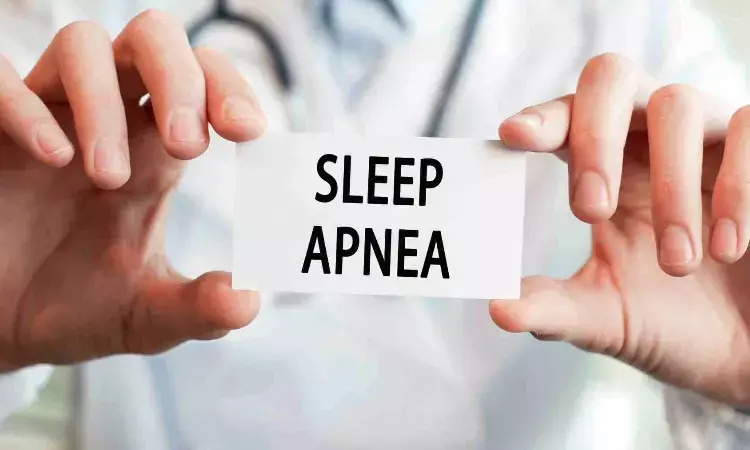- Home
- Medical news & Guidelines
- Anesthesiology
- Cardiology and CTVS
- Critical Care
- Dentistry
- Dermatology
- Diabetes and Endocrinology
- ENT
- Gastroenterology
- Medicine
- Nephrology
- Neurology
- Obstretics-Gynaecology
- Oncology
- Ophthalmology
- Orthopaedics
- Pediatrics-Neonatology
- Psychiatry
- Pulmonology
- Radiology
- Surgery
- Urology
- Laboratory Medicine
- Diet
- Nursing
- Paramedical
- Physiotherapy
- Health news
- Fact Check
- Bone Health Fact Check
- Brain Health Fact Check
- Cancer Related Fact Check
- Child Care Fact Check
- Dental and oral health fact check
- Diabetes and metabolic health fact check
- Diet and Nutrition Fact Check
- Eye and ENT Care Fact Check
- Fitness fact check
- Gut health fact check
- Heart health fact check
- Kidney health fact check
- Medical education fact check
- Men's health fact check
- Respiratory fact check
- Skin and hair care fact check
- Vaccine and Immunization fact check
- Women's health fact check
- AYUSH
- State News
- Andaman and Nicobar Islands
- Andhra Pradesh
- Arunachal Pradesh
- Assam
- Bihar
- Chandigarh
- Chattisgarh
- Dadra and Nagar Haveli
- Daman and Diu
- Delhi
- Goa
- Gujarat
- Haryana
- Himachal Pradesh
- Jammu & Kashmir
- Jharkhand
- Karnataka
- Kerala
- Ladakh
- Lakshadweep
- Madhya Pradesh
- Maharashtra
- Manipur
- Meghalaya
- Mizoram
- Nagaland
- Odisha
- Puducherry
- Punjab
- Rajasthan
- Sikkim
- Tamil Nadu
- Telangana
- Tripura
- Uttar Pradesh
- Uttrakhand
- West Bengal
- Medical Education
- Industry
Low oxygen during sleep and sleep apnea linked to epilepsy in older adults: Study

Sleep apnea and low oxygen levels while sleeping are associated with epilepsy that first occurs after 60 years of age, known as late-onset epilepsy, according to a new study funded by the National Institutes of Health (NIH) and published in Low oxygen during sleep and sleep apnea linked to epilepsy in older adults. The link was independent of other known risk factors for late-onset epilepsy and sleep apnea including hypertension and stroke. The findings may help to better understand the relationship between sleep disorders and late-onset epilepsy, as well as identify potential targets for treatment.
“There’s increasing evidence that late-onset epilepsy may be indicative of underlying vascular disease, or neurodegenerative disease, even potentially as a preclinical marker of neurodegenerative disease,” said Rebecca Gottesman, M.D., Ph.D., chief of the Stroke Branch at the NIH’s National Institute of Neurological Disorders and Stroke (NINDS), and an author on the study. “Compared to other age groups, older adults have the highest incidence of new cases of epilepsy-up to half of which have no clear cause. Sleep apnea is common among people with epilepsy, but the association is not well understood.”
Researchers, led by Christopher Carosella, M.D., assistant professor of neurology at Johns Hopkins University, Baltimore, identified cases of late-onset epilepsy using Medicare claims and analyzed sleep data from more than 1,300 participants in a study of sleep-disordered breathing and cardiovascular disease. They found that people whose oxygen saturation fell below 80% during sleep, a condition known as nocturnal hypoxia, were three times more likely to develop late-onset epilepsy compared to those who did not have similarly low oxygen levels. In addition, participants with self-reported sleep apnea in later life were twice as likely to develop late-onset epilepsy as those without the sleep disorder.
The degree of hypoxia during sleep was associated with late-onset epilepsy, independent of other co-occurring medical issues and demographic factors. The authors note that the study did not detect an association between the apnea-hypopnea index, a traditional measure of sleep apnea severity.
Sleep apnea is known to be a risk factor for poor brain health in other ways, including risk of stroke and dementia, but an association with epilepsy had not been described previously. The link to hypoxia suggests that repeated chronic exposure to low oxygen levels overnight might lead to brain changes that ultimately lead to risk of epilepsy. The study can’t determine whether treating or preventing sleep apnea might reduce the risk of epilepsy, but it does suggest that this may be an important potential target for reducing risk of late-onset epilepsy.
“Discovering a reversible cause for the development of any type of idiopathic epilepsy is an aspirational goal for epilepsy researchers or clinician,” said Dr. Carosella. “We hope this study might be a small first step in that direction and also an encouragement to evaluate and treat sleep disorders in patients with epilepsy.”
Because sleep apnea can have cardiovascular and brain health-related effects, the findings may also ultimately help to identify individuals at risk for some of these other conditions, providing a potential opportunity for treatment and prevention.
Future studies are needed to assess whether treating sleep apnea in patients at risk for late-onset epilepsy may help prevent the onset of the disease.
Reference:
Christopher M Carosella, Rebecca F Gottesman, Anna Kucharska-Newton, Pamela L Lutsey, Adam P Spira, Naresh M Punjabi, Andrea L C Schneider, Kelsie M Full, Emily L Johnson, Sleep apnea, hypoxia, and late-onset epilepsy: the Atherosclerosis Risk in Communities study, Sleep, 2023;, zsad233, https://doi.org/10.1093/sleep/zsad233.
Dr Kamal Kant Kohli-MBBS, DTCD- a chest specialist with more than 30 years of practice and a flair for writing clinical articles, Dr Kamal Kant Kohli joined Medical Dialogues as a Chief Editor of Medical News. Besides writing articles, as an editor, he proofreads and verifies all the medical content published on Medical Dialogues including those coming from journals, studies,medical conferences,guidelines etc. Email: drkohli@medicaldialogues.in. Contact no. 011-43720751


